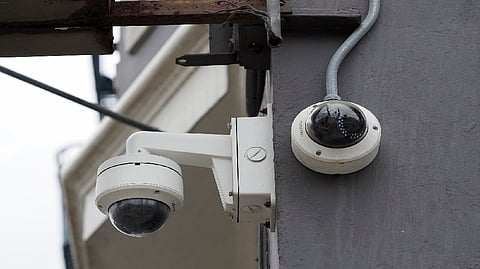

I have always been fascinated by webcams that watch for anything that moves. When I lived in a no-frills neighborhood in San Francisco a few years ago, my camera witnessed all flavours of urban crime, from amateur fireworks shows to street fights. After I moved to the suburbs, my camera became a nature documentarian of the local fauna, like the deer that devour my rosebushes the instant they bloom. Only recently did I force myself to weigh the potential privacy costs of this seemingly innocuous surveillance gadget against the benefits I was gaining from it — and I decided to unplug my camera.
That’s because San Francisco, long a capital of progressivism and a haven for techies, is about to embark on a citywide surveillance experiment that privacy experts warn could set a dangerous precedent. It signifies an important moment in which anyone who owns a security camera, including popular devices like Amazon’s Ring and Google’s Nest Cam, should pause to reflect on some critical questions: What are we actually getting from these cameras? What are we giving away? Are the trade-offs worth it?
This week, the city will put into effect its new camera ordinance, which is aimed at helping the police investigate crimes. The legislation, crafted by the city’s mayor, London Breed, gives the police the right to request access to the live footage of privately owned internet cameras.
In the past, the police could request recorded footage from the owners of internet cameras, or they could ask the tech companies for the data. The police say having access to live footage will enable them to respond to crimes happening in real time.
The ordinance’s near-term impact on consumer privacy will be minimal because of limits in the technology. But the implications of the increasingly tightknit relationship between tech corporations and government agencies should make us seriously assess how we use our cameras — so that we can protect our privacy in the long term.
San Francisco’s camera ordinance serves as an important lens through which to examine these questions and the current debate surrounding surveillance. Proponents of the camera program say the goal is to make the public safer. Officials in the mayor’s office cite examples like the city’s Western Addition district, where shootings were rampant in the 1990s but dropped after the installation of city-owned cameras in the mid-2000s.
Opponents of the ordinance, like the Electronic Frontier Foundation, say research has shown that cameras do little to reduce crime. A study from New York University, for one, found that cameras installed in two privately owned apartment complexes in New York City were an ineffective crime deterrent.
But several privacy experts warned against being complacent. Now that there is legislative language allowing the police to request live access to camera technology, the concern is that the police will put pressure on the tech companies to cooperate.
Visit news.dtnext.in to explore our interactive epaper!
Download the DT Next app for more exciting features!
Click here for iOS
Click here for Android